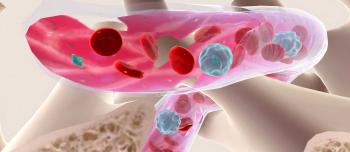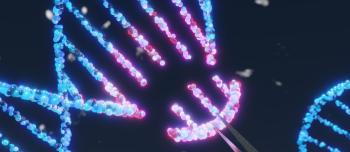Spark Therapeutics announced updated data from a subgroup of four patients enrolled in a phase I/II clinical trial of SPK-9001, the company’s novel investigational hemophilia B gene therapy. The data were reported at the 21st Congress of the European Hematology Association (EHA) in Copenhagen, Denmark, June 9-12, 2016. The individuals enrolled in this group, all patients with hemophilia B, received a lower dose of SPK-9001 and have achieved successful outcomes to date.
Spark is developing SPK-9001 in collaboration with Pfizer Inc., as part of the SPK-FIX program. SPK-FIX was established in December 2014 with the goal of developing and commercializing novel gene therapy-based treatments for hemophilia B using the company’s bioengineered adeno-associated viruses (AAVs). Spark’s proprietary AAVs are delivery vehicles, or vectors, that carry the genetic codes that prompt the production of the factor IX (FIX) protein that is deficient in individuals with hemophilia B. Ideally, AAVs deliver the genetic material into living cells via a single injection into the liver, to sustain therapeutic effect without causing disease or triggering significant immune responses.
Data presented at the EHA Congress showed that the four patients in the low-dose group experienced “consistent and sustained factor IX activity levels” following a single low-dose injection of SPK-9001. The first two patients, neither of whom had a history of liver disease, exhibited FIX activity levels that rose consistently. The first patient stabilized at 28% of normal FIX through the first 26 weeks after administration; the second reached 41% of normal FIX activity at 15 weeks.
The third patient, who has a history of liver disease, showed a FIX activity rise of 26% of normal at approximately 10 weeks after administration. The fourth subject, also with a history of liver disease, experienced a similar response to SPK-9001, with reported FIX activity of 33% approximately seven weeks after administration.
According to a Spark press release, none of the first four subjects received regular infusions of FIX concentrates to prevent bleeding events during a combined 58 weeks of observation. One precautionary infusion took place due to a suspected ankle bleed in one patient two days after administration. Based on their pre-enrollment histories, it is estimated that the four subjects followed to date would have received more than 100 infusions of recombinant FIX over the period of the study to prevent or treat bleeds as part of their normal care. Across the group, investigators reported no sustained elevation in liver enzyme levels, no drop in FIX levels and no significant immune response.
“We believe that the key to the hemophilia B results was the optimization of SPK-9001, which allowed us to observe therapeutic levels of FIX activity utilizing a low dose. The data emerging from our hemophilia A program show parallels to the preclinical data in hemophilia B,” said Katherine A. High, MD, co-founder, president and chief scientific officer of Spark.
Spark is also developing an investigational candidate for hemophilia A known as SPK-8011. “We remain on track to rapidly progress SPK-8011 for hemophilia A into a Phase I/II clinical trial in the second half of 2016, and to potentially see the first human data from this program in the first half of 2017,” added High.
Source: Spark Therapeutics press release dated June 13, 2016





